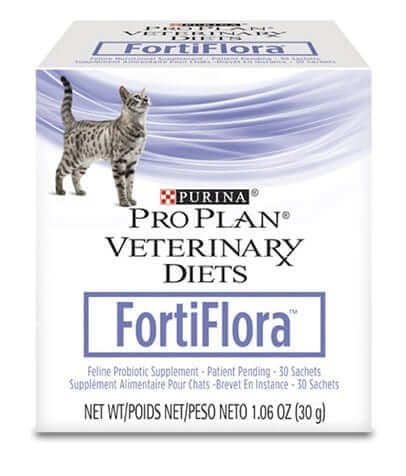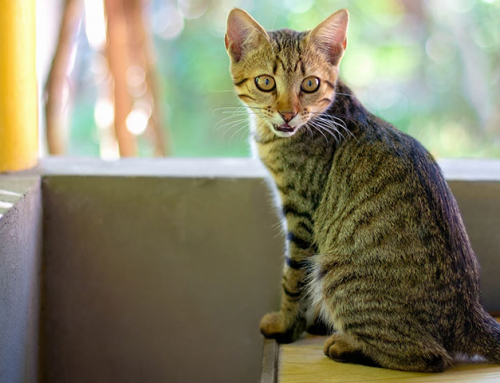Man, I tell ya. The readers of this newsletter have to be the most compliant bunch of pet owners that I know. Here is another recent interaction I had. This pet owner seems to be pretty sharp! Today’s focus is an upper respiratory infection in Buddy the diabetic cat.
Dear Dr. Sutton, My 14-year old cat, Buddy, has been diabetic for about 5 yrs. I’ve been able to keep him well regulated with the help of your letters. Thank you! My concern for him is he has had a chronic upper respiratory problem since I found him when was a tiny and sick little kitten. He has a discharge from his nose that is green & thick with blood in it sometimes. It looks like the discharge I have when I have a sinus infection. My vet said this is common with some cats, and there is not much they can do for him. His treatment is antibiotics when it occurs which is 6-8 months out of the year. I want to start giving him probiotics. Do you have any advice, and what probiotic would you recommend?
Great question! Your sweetie’s situation is far more common that you may suspect. Over the years we vets have come a long way for treatment of cats that have chronic upper respiratory tract infections. Not only would I start him on probiotic, I’d also add in some daily L-lysine and an occasional anti-viral med and of course antibiotics when needed for flare ups.
First let’s talk probiotic! Probiotics have been shown in human patients to help decrease the frequency of some chronic infections such as upper respiratory tract infections and urinary tract infections. A good portion of our immune system is in our GI tract.

And now how to get probiotic into a cat… Fortiflora is supposedly delicious. Well, that’s word on the cat street. I’ve not personally tasted it. You sprinkle it on your cat’s food every day. Proviable is also quite good, and it comes as a paste or as a capsule, which can be harder to give to some felines. Synacore is a newer brand that has a good reputation. You sprinkle that one on the food as well. I think you should give probiotic a try, but give it a minimum of a few months before making any evaluation for improvement.
Next let’s discuss L-lysine. It is an amino acid that inhibits herpes reproduction. It competes with another amino acid in the replication of the virus. Love is fleeting, but herpes is forever. Herpes is the “FVR” of the fvrcp vaccine, one of the core cat vaccines. Herpes is the most common upper respiratory tract infection that afflicts cats. Do try L-lysine and use it forever if it helps. Again, give L-lysine for 3 to 6 months before evaluating if it is helping. Like probiotic, it’s not a magic bullet, but can help. It comes in gels or powders that you can sprinkle on the food. Cats don’t like taking pills usually, but you can find it in pill form over the counter at your local vitamin shop or pharmacy.
Finally, when he has a flare up, ask your vet about a prescription of Famcyclovir. It works great for herpes in cats. Have your vet shop around. It used to be horribly expensive, like 10 bucks a pill at cost. Ouch! It can be found much cheaper these days. Truly, depending on the brand, there can be a tenfold difference in cost. It is an antiviral medication and will likely speed up the recovery when he has a flare up IF it is from herpes. There are several anti-viral medications available, but Famcyclovir seems well tolerated by most cats. Just as a human might take a Valtrex when a cold sore comes on, your vet might prescribe Famcyclovir when your cat’s upper respiratory disease flares up.
Of course, when he has a flare up we usually also cover kitties with antibiotic as well. Knowing how cats can be difficult to treat, my most recent favorite is Azithromycin for kitty upper respiratory infections because it has a good spectrum and it takes a long time for the body to eliminate the medication. Humans have often heard of the “z pack” where the med is taken for 5 days but lasts much longer. The z pack is azithromycin. In my own hospital pharmacy, I keep on hand compounded little kitty dose sized tablets of azithromycin and also keep on hand the commercial liquid azithromycin. The commercial stuff is cherry flavored and most of my cat patients prefer the small tabs. I snicker as I tell clients I’m sending them home with a “kitty z pack”. If the case has been chronic, your vet might anesthetize your kitty for a culture of the nose. I said anesthetize because I don’t know a cat who would tolerate a nasal swab!
Let’s quickly talk dental care. It is possible that the chronic upper respiratory disease could be from a bad tooth or bad teeth. Since he has had this since a kitten it is more likely viral, but I wish to be thorough. I think this warrants a dental valuation and dental radiographs. Dental images of the roots are very important. In my clinic my amazing vet nurses can take full mouth views of a cat in about 5 minutes. That is not extending anesthesia time like it would have back in the old days when dental films were films rather than digital images. A tooth can look perfectly fine from the outside, but on radiograph you can see it is abscessed. This is why your own dentist takes radiographs when you go to the dentist!
I think a common issue is that we may not treat sinusitis long enough for the average cat. You say he is on antibiotic for 6 to 8 months of the year so you get the gold star on this point. Usually after a week your cat grows tired of you chasing it around the house to give the oral medication. Add in the fact that our cats are usually smarter than we are. No, they can’t read nor drive, but when my least intelligent cat thinks it’s time for his nail trim or monthly heart worm preventative he will hide where I can’t find him. In my book that means he outsmarted me. If only your cat would use a netty pot! Can you visualize that??
I’m so glad you wrote. There definitely are things you can do! I think when you get his sinus infection under control you may find his diabetes better controlled as well!
Have a question or comment? Post below or email me at [email protected]. I always enjoy hearing from my readers!
NOTE: Consult your veterinarian first to make sure my recommendations fit your pets special health needs.







Leave A Comment